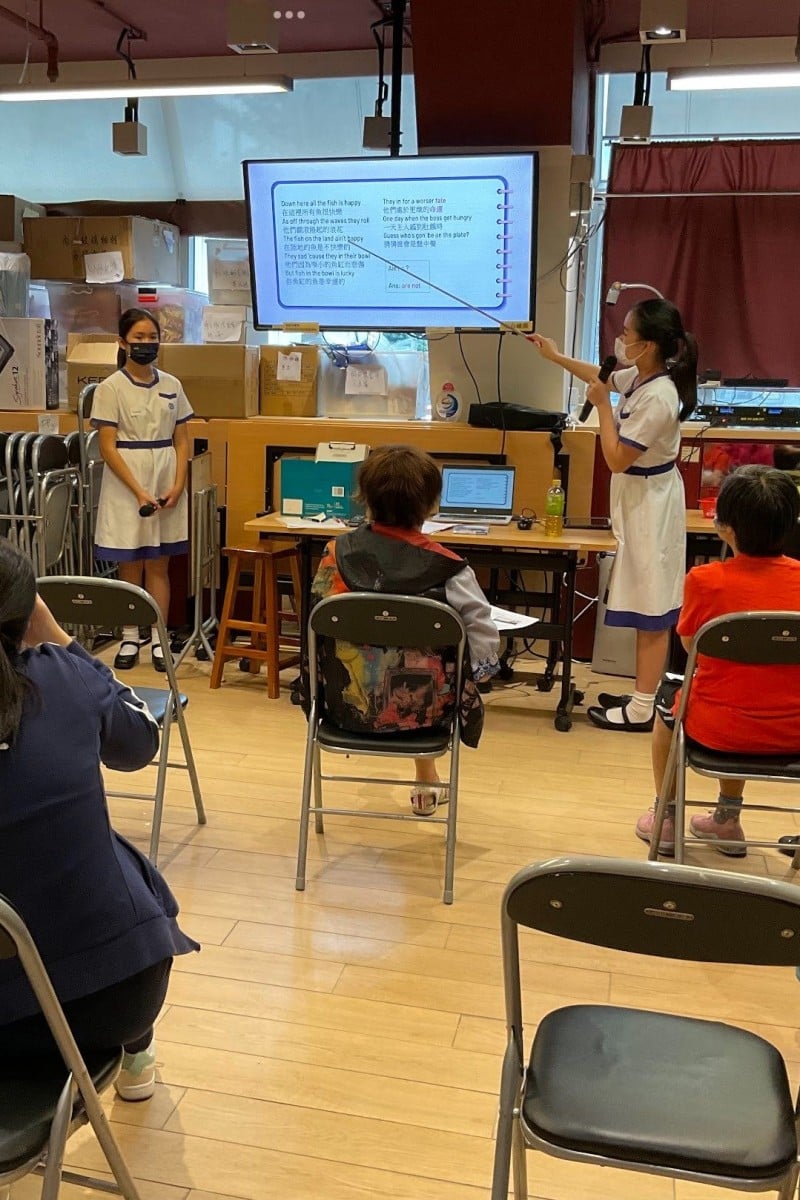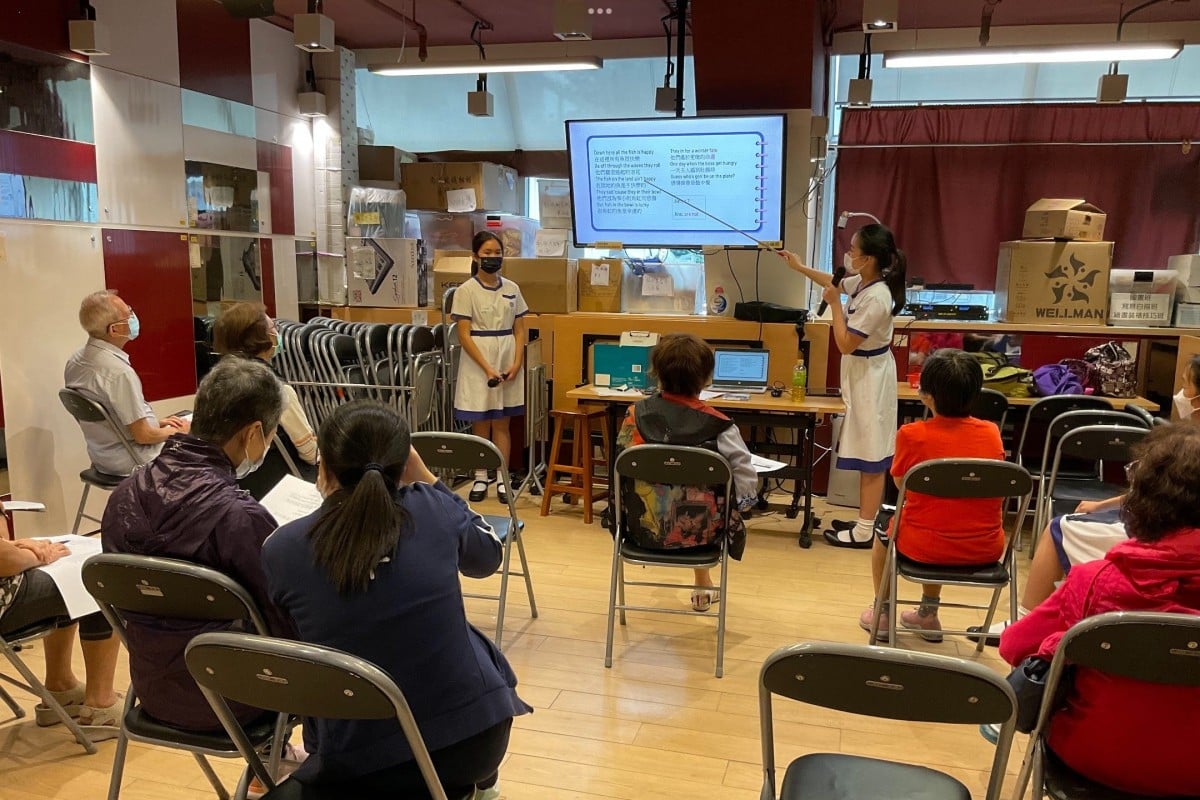
Hong Kong teen shows how empathy is tied to community service in her projects for underprivileged children, elderly
- Diocesan Girls’ School pupil Cherrie Tong Hei-tung is a winner of this year’s Hong Kong Outstanding Students Award thanks to her commitment to helping others
- Every week, Talking Points gives you a worksheet to practise your reading comprehension with exercises about the story we’ve written
 Though Cherrie Tong’s project started with tutoring children, they later expanded their services to the elderly by organising activities for them. Photos: Handout
Though Cherrie Tong’s project started with tutoring children, they later expanded their services to the elderly by organising activities for them. Photos: HandoutAs 17-year-old Cherrie Tong Hei-tung and thousands of other Hong Kong students shifted to online learning during the Covid-19 pandemic, she sensed they were in for a challenging, isolating time.
“We heard from a lot of parents that students were struggling,” the Diocesan Girls’ School (DGS) pupil explained. “They couldn’t catch up with the teaching schedule or got distracted during their online classes.”
Thus, in 2020, Cherrie and other members of her school’s student-led Citizens Club launched an online tutoring service to help underprivileged children with the sudden shift to virtual learning.
“At the start of the project, we were very nervous but also very excited. I was only in [Form Three], and it was my first time implementing and organising a large-scale service,” shared the student, who is now in Form Six.
Through online promotions and sharing sessions, the club recruited more than 150 DGS student volunteers. The initiative not only offered one-on-one tutoring but also group activities where students could discuss their mental health during a tough and lonely time.
“We also taught them how to socialise with friends and adapt to secondary school life,” Cherrie said. “A lot of these children come from the mainland, so they’re new to Hong Kong. So we also taught them about local culture and how to get into a social life.”
The team continued their services once on-campus lessons resumed, moving to face-to-face sessions. “We’ve helped over 500 kids,” Cherrie said. “We’re really proud of that.”
Cherrie was recently named a winner of this year’s Hong Kong Outstanding Students Award. The award honours 10 students every year for their achievements in various disciplines. It is organised by the Youth Arch Foundation, a charity that fosters young talent and encourages them to give back to society.
Intergenerational learning
Once Hong Kong’s Covid-19 restrictions were lifted, Cherrie’s team expanded their initiative to include in-person services for the elderly. They arranged for student volunteers to chat with the older generation, teach them how to use technology, and organise group activities, like art sessions. Cherrie said she learned that teens and the elderly both dealt with anxiety but for different reasons.
“For teenagers ... anxiety comes from comparison and peer pressure, academics, society or family,” she said, while noting that elderly anxiety is often caused by loneliness: “They also lack a sense of purpose, especially after they retire. They feel like they’re being neglected by society.”
The teen noted that the elderly were often more direct about their needs. “They say to their family members, ‘Oh, can you come back to visit me more?’ This is something teenagers can learn – to be more expressive ... and express what they think.”
Meanwhile, a way to help the older generation is to spend time with them and encourage them to take up new activities.
“Elderly people have difficulty with hobbies after retirement, but there’s that old saying that goes, ‘It’s never too late to start,’” she said. “Many elderly find their sense of purpose [through] singing or doing calligraphy ... they feel like there’s something they’re good at.”
Importance of empathy
Cherrie explained that the key to a successful social service programme is empathy: “It’s putting yourself in the other person’s shoes and thinking from another perspective. We should be more open-minded and recognise that listening to others can broaden our horizons and teach us something new.”
The need for empathy isn’t limited to volunteering. “When we chat with our friends or family, we need empathy to understand their needs and points of view and resolve conflicts. It’s a way to have a stronger relationship and closer bond with others,” she said.
With her university entrance exams coming up, Cherrie aims to study medicine, saying, “I hope to ... help the elderly, for example [in] psychiatry or neuroscience.”
She also plans to continue volunteering and hopes to motivate others to follow in her footsteps: “Service benefits our targets and ourselves; it’s a way to develop personal growth and understand our community.”
